THE HUSTLE features the same central premise as the film on which it’s based—the Steve Martin/Michael Caine two-hander DIRTY ROTTEN SCOUNDRELS—except this time, instead of two men swindling women, it’s two women swindling men (!). I suspect the filmmakers believe this to be somewhat of a “feminist” twist, which is strange since the original film already lampoons masculine hubris so effectively. After digesting the experience some, I’m still quite not sure the filmmakers realize what they’ve gotten themselves into. It’s a violent, hateful exercise in not-so-subtle misogyny, inviting its audience to guffaw at co-star Rebel Wilson’s mere existence, and generally find humor in her unceasing physical torment. Weird that this somehow isn’t my thing.
THE HUSTLE, directed by Chris Addison (who was so funny in British satirist Armando Iannucci’s political comedy—IN THE LOOP—here trying his hand at directing), opens with a painful scene which finds Rebel Wilson’s Penny attempting to con a brutish man into wiring her 500 dollars for her (pretend) sister’s breast augmentation. As you can imagine, it’s all downhill from there, as the film next introduces us to the inexplicably accented Anne Hathaway in a French locale, where we glimpse her debonair male target flippantly telling another woman to shave her armpits (we’re still using that one?) before being taken in by Hathaway’s good looks and modulated naivety.
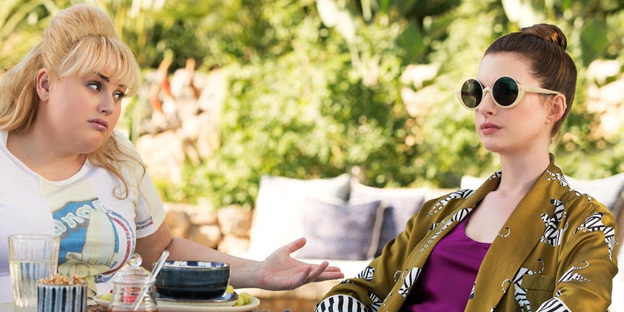
“We could just dip out now before this movie goes on our permanent record.”
Penny and Hathaway’s Josephine cross paths, butt heads, and eventually furnish a wager—the first woman to extract 500 grand from a nebbish tech billionaire gets to stay in town, the loser leaves for good. Addison leans heavily on improvisation, forcing Wilson especially to self-deprecate in gags about how fat she is, how unattractive she is, how much of a slob she is, etc. It’s especially strange coming off the heels of ISN’T IT ROMANTIC, which categorically rejects this kind of fat-shaming and body negativity. Wilson is doing her usual schtick here and your mileage may vary—these thankless roles must take a toll on her, no?
If Addison isn’t relying on tired improv—you can actually feel the actors’ fatigue—he’s mainlining slapstick, almost all of which is at Wilson’s expense. She runs into doors, gets hit by falling objects and superglued to a wall, and otherwise sustains immense physical injury. There’s a whole section of the film that plays downright sadistic, with Hathaway ruthlessly exploiting Wilson, strapping her to the back of her bicycle and forcing her to eat french fries dipped in toilet water. The film is quite aroused at the idea of making this woman suffer.
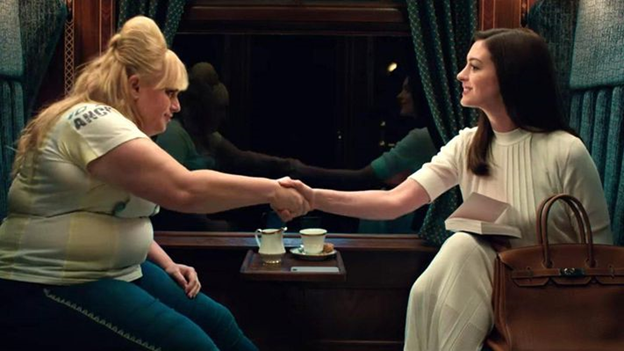
“Never talk about this project again?”
“Agreed.”
Filmmaking merits are to be ashamed of; an early scene in a train botches the eyeline between Wilson and Hathaway and the movie’s editing is incompetent at best. Take, for instance, a scene between Wilson and Hathaway’s no-nonsense French accomplice where Wilson attempts to recall Josephine’s name. She rattles off a series of mumbled half-suggestions before stumbling excitedly onto “Josephine.” We’ve watched this scene plenty of times before, but the film has no idea how to handle it, lingering on Wilson’s face for the duration of the guessing game and not once cutting to a reaction shot of Josephine’s partner looking appalled or confused.
I’ve noticed this trend in mainstream comedies recently, where the reaction shot is neglected in favor of focusing on the actor delivering the joke. I’m not sure what the thought process behind this is, but there’s a reason we have the reaction shot. It’s to inform us that these people really are crazy, that it’s okay to laugh at them. It’s basically a Get Out Of Jail Free card, but the movie is too busy imprisoning Wilson in comedic solitary confinement—she really is all alone here, flailing desperately for a punchline—to pay that much mind.
Alex Sharp—playing the Mark Zuckerberg surrogate—is at least a breath of fresh air, though in a shocking move the film pays more attention to his character’s emotional world than it does Wilson’s or Hathaway’s. There’s a predictable twist (one that only makes sense if you buy into that old John Mulaney bit about women being too petty to pull off a proper heist re: the all-female reboot of OCEAN’S ELEVEN) and by the end of the film, the two women have become entirely dependent on Sharp’s character. There’s only one bit of proper acting in the film, where Rebel Wilson recounts the emotional experience of meeting men after she’s catfished them and the look of disgust on their faces as they realize she’s the woman with whom they’ve been exchanging innuendos and saucy photos. More moments like this could’ve elucidated the film’s intentions but, as is, THE HUSTLE is a bona fide dumpster fire—chauvinist, unfunny, as useless as the crippled, faux progressive horse it rode in on. Getting audiences to pay the full price of admission was the real hustle.



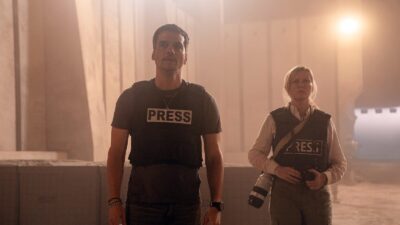
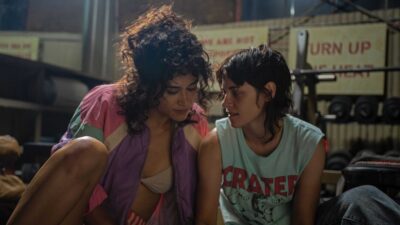








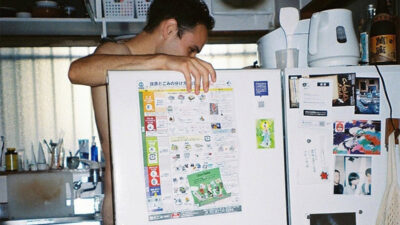

Comments